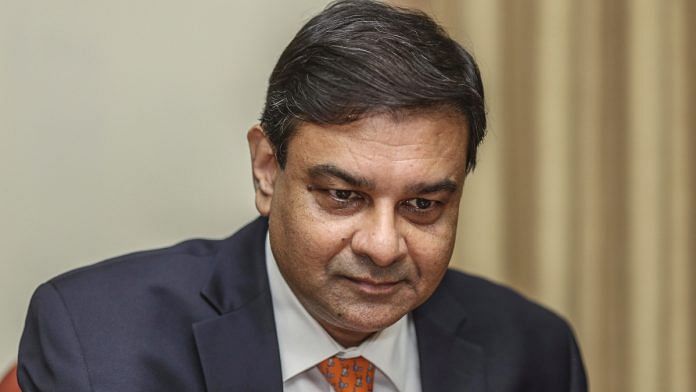Urjit Patel, whose term as RBI governor was due to end next September, resigned on Monday.
Urjit Patel resigned as governor of India’s central bank amid growing differences with the government on addressing issues ranging from problems at the country’s lenders to utilization of capital reserves.
“On account of personal reasons, I have decided to step down from my current position effective immediately,” Patel said in a statement posted on the central bank’s website.
Patel, who succeeded Raghuram Rajan in September 2016 for a three-year term, has been at loggerheads with the finance ministry on matters including the banking crisis and interest rates. The differences came out in the open when Deputy Governor Viral Acharya, in a hard-hitting speech in October, defended the central bank’s independence and sought more freedom in supervising state-run lenders.
Oxford-trained Patel, who has tried to stay away from the spotlight, was initially seen playing along with Prime Minister Narendra Modi after he backed a ban on high-value currency notes in November 2016. Since then, he has waged a war to get India’s struggling banking system in order and punish errant borrowers who have stopped servicing their debt even though they have the ability to pay.
His exit comes at a time when India, which is closing in on Italy to become home to banks with the worst bad-loan ratio among major economies, is delivering a bitter pill to resuscitate its banking sector.
Also read: Urjit Patel is rigid & uncommunicative but India can’t afford his resignation
Backfire
The Indian central bank is not alone in facing political heat with the challenges to the independence of monetary policy makers a theme of 2018. The Federal Reserve has weathered criticism from U.S. President Donald Trump, while counterparts in Turkey, New Zealand and the U.K. have also been pressured by policy makers.
The risk is that political pressure could backfire. A study in the 1990s by economists Alberto Alesina and Lawrence Summers concluded that independent central banks were better at controlling inflation without damaging output or employment. Markets may also push up long-term borrowing costs if they fear central banks are taking their eye off inflation.
Earlier this year, the RBI introduced new rules forcing lenders to declare a delinquent borrower even if payments were overdue by a day. That was aimed at easing mounting bad loans, particularly from the power sector.
Patel also moved in to ring-fence weak state-run banks. Currently, a total of 12 banks — 11 in the public sector and one in the private sector– are under the so-called prompt corrective action framework that places curbs on lending, expanding branch network and dividend distribution.
The government wanted the RBI to relax the rules so banks can lend more easily and keep the economic engines firing ahead of a general election next year. But the RBI wants these banks to be slowly nursed back to health. According to the central bank, it needs to be independent so that loan losses of banks aren’t swept under the rug by compromising supervisory and regulatory standards.
Independence threatened
That independence came under threat last month, when the government sought greater oversight on the central bank’s functioning and a review of its economic capital framework. Patel has also disagreed with the government’s demand for more share of profits from the RBI’s operations. A transfer of more dividend helps the government meet its budget gap aim.
Patel also tried to burnish the RBI’s credentials as an inflation-fighting central bank. The six-member Monetary Policy Committee delivered two interest rate increases this year amid rising crude oil prices and weakening rupee. It paused in October and December as financial conditions tightened and signs emerged of demand in the economy is slowing.
Also read: 5 reasons why the RBI and Modi govt are at loggerheads




A most unfortunate development. It is generally not about the individual. When two successive Governors of the RBI leave in what may be considered unconventional circumstances, a great deal of introspection is required. This departure will further confirm the belief that institutions are not in the best of health, also that the management of the economy has been unspectacular. In any system, there is so much accumulated wisdom, often acquired painfully through trial and error, institutional memory, all of which are deserving of the highest respect, even as each inauguration marks an auspicious new beginning, a chance to both build and improve upon the past. In present circumstances, Shri Hasmukh Adhia would get my vote to be the next Governor,